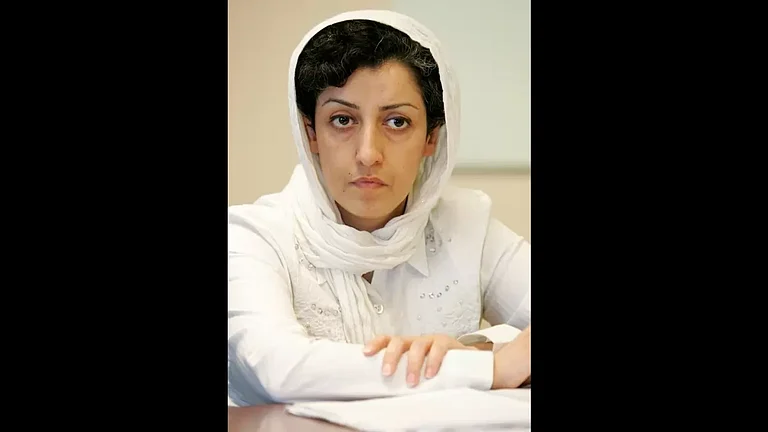All hell broke loose as soon as the Dawn TV network quoted a "high-ranking official" to declare: "Sadly, it has been established that Kasab is a Pakistani citizen. He’s the son of Amir Kasab and Mrs Noor Illahi of Faridkot." The official wasn’t named, but an Indian TV channel got into the act, saying it was none other than Durrani who had provided the confirmation in their interviews with him. (The NSA was to later claim he had only said that "Kasab could be a Pakistani national.")
Singing another tune on Kasab’s nationality was foreign secretary Salman Bashir. "Not so," he responded. "Investigations are still continuing and it would be premature to state anything at this time." From Kabul, Pak foreign ministry spokesperson Mohammad Sadiq added, "We are still investigating and cannot confirm." And then came the breaking news on the state-owned TV—information minister Sherry Rehman’s SMS to a news agency confirming Kasab’s Pakistani nationality. You thought this was it.

Zardari (left) with PM Yousuf Gilani
But the TV show took another weird turn. The president reportedly learnt only from TV that his PM had sacked Durrani as NSA. Durrani is close to Zardari, who had pulled him out from Washington, where he had been sent as Pakistan’s envoy by the Musharraf regime. To rub salt in the wounds, Gilani told Geo TV, "My NSA has embarrassed me. I wasn’t taken into confidence (about Durrani’s admission) so I have dismissed him with immediate effect."
This was indeed an eye for an eye. The security establishment had seemingly forwarded a file to the prime minister’s office confirming Kasab’s Pakistani identity, a rarity in South Asia where inconvenient truths are often fudged. Gilani had been fashioning a strategy to break this news, hoping to leverage this to Pakistan’s advantage and earning a pat for himself. Obviously, Zardari’s men beat him to it, yet another indicator of the simmering discontent between the president and the PM. Perhaps, from now Zardari would have another power centre, apart from the army, to contend with.
Before this madness unfolded on TV, ISI chief Lt Gen Ahmad Shuja Pasha created a stir through an interview to a German publication. Speaking about the possibility of Pakistan going to war against India, Pasha had said, "We may be crazy in Pakistan, but not completely out of our minds." The newpapers reporting the January 7 drama rephrased Pasha’s comment thus: "We are crazy in Pakistan and completely out of our minds."
The only voice of sanity came from Opposition leader Mushahid Hussain, who welcomed Pakistan accepting Kasab as its own. "This is a positive step," he said. "Pakistan has done the right thing by telling the truth." Pakistan’s acceptance of a terrorist nabbed in India as its citizen is unprecedented. This, though, raises the question: Will this inaugurate an era of serious crackdown on militant organisations?
There are whispers in army circles that the generals might be willing to act against their proxies (read the Lashkar) if India provides a quid pro quo in Kashmir. Also, some in the security establishment say they have made progress in their probe into the origins of the Mumbai attack, and feel that India should accept joint investigations aimed at piecing together all the clues.
Analysts, however, feel New Delhi is only interested in extradition of those who it believes masterminded the attacks. But Ahmed Bilal Soofi, an expert on international law, says, "There is no legal obligation for Pakistan either under SAARC or UN conventions or its own law to hand over any Pakistani national to India. It can only be done if the government so desires and shows some political will." The SAARC convention isn’t binding and, more importantly, subject to the laws of a SAARC country to which requests for extradition are made.
Otherwise too, no Pakistani government can survive extradition of its citizens wanted in India. "Can you as a Pakistani even think of such an action?" asked a serving general. Gen (retd) Rashid Qureshi, a former aide of Musharraf, feels India played its card poorly: "Without completing its own investigations, India sent its planes into our airspace and issued other threats. Which government in its right mind would oblige after such provocation?" Adds Opposition MP and columnist Ayaz Amir, "Even if the army, for the sake of argument, agrees to extradition, the brigadier and lower rank officers would take it very hard. This is also a deeply unpopular government. India should do the doable. Is it really serious about extradition? Or does it just want to weaken Pakistan?" And so the war of words continues.





















